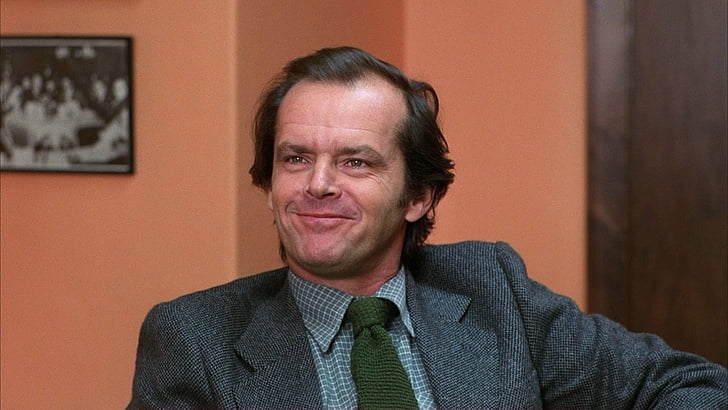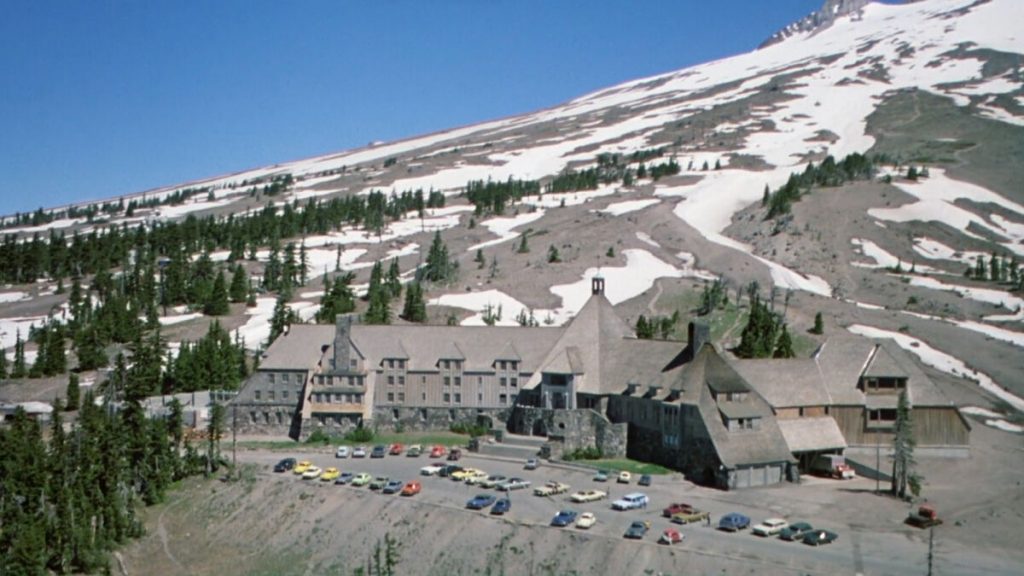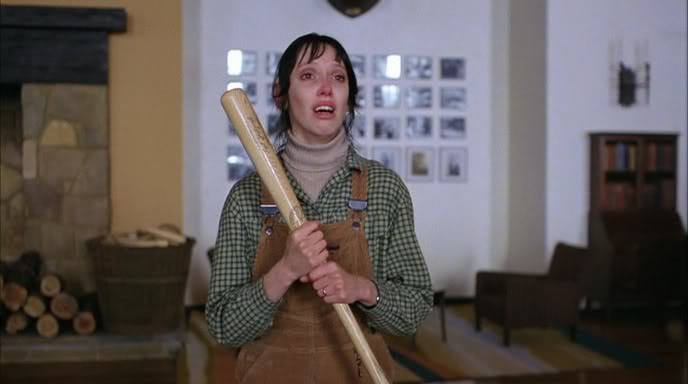A dive into one of the most overrated films ever
I hate this film. ever since I first watched The Shining at eighteen years old I felt a distinct dislike of Kubrick’s movie. I had heard all of the typically celebratory remarks, I had seen it placed in people’s ‘Top Ten’ horror films of all time, I had studied it at university for its literary and cinematic significance. But when I sat down to watch the movie purely as a moviegoer, I was left disappointed and angered at the film’s denouement.
Stanley Kubrick’s The Shining has been lavished with praise ever since it premiered in 1980. Everything from the acting performances of Jack Nicholson and Shelley Duvall to the cinematography of Kubrick has been marveled at by critics and casual moviegoers alike. Decades after the film’s release, The Overlook Hotel, and its many inhabitants have passed on into cinematic legend.
Strangely enough though, one of the most prominent critics of the film has been none other than Stephen King himself, author of The Shining and over 50 other titles in the horror, science-fiction, and fantasy genres. I, along with a relatively small minority, happen to agree with him. Kubrick’s adaptation is a poor imitation of one of King’s better and more infamous stories.
Let’s address the biggest problem of the film first. A problem that announces itself from the very beginning. Jack Nicholson. It pains me to levy any kind of criticism against such an amazing actor, but his appearance here is woefully miscast and unfortunately, only damages the narrative of The Shining rather than elevate it with his unique acting talents.
Stephen King’s story of an average, down-on-his-luck father trying to recover from addiction and ignite his faltering writing career is what gave The Shining novel its heart, making readers feel for a character who didn’t hate his family and was slowly driven to murderous insanity by the spirits of the Overlook Hotel. On the other hand, Nicholson’s portrayal denotes insanity from the offset, with the first shot of Jack Torrance showing a grin tinged with an underlying menace; there was, and never is, any room for empathy with this character. Nicholson’s Jack is foreboding and, while it does give the character presence on screen, it severely diminishes any possibility of tension the audience might expect to experience. Taking one look at Nicholson’s expressions, we know exactly what is going to happen, it becomes a matter of when, and not if, he will go insane. He does not particularly seem to like his family, coming across as someone too self-absorbed to truly appreciate his family and therefore, struggle with the possibility of loosing them.

I mentioned tension earlier, and what most defenders of The Shining are quick to point out is just how tense Kubrick’s film is. They argue that this tension is a key ingredient to the success of the movie, above, even, the horror of its climax. While it is hard to disagree that the movie is a textbook example of how to create powerful tension, It has to be said that perhaps there can be too much of a good thing. The time Kubrick took to generate all of the wonderful, thick tension that runs through the veins of The Shining may have been better served to provide just a bit more action. As I watched the film for the first time it began to draw on, with the shots of characters roaming the empty corridors of the hotel and the gorgeous establishing shots of the location quickly becoming boring. We are teased constantly by the cinematography, reminded of our character’s virtual entrapment in this ghostly place. And yet, not enough is done throughout the film to release this tension. Yes, Jack’s eventual rampage is thrilling to watch and his famous “Here’s Johnny” line will live long in the memory of horror cinema but aside from this, there is little to thrill or terrify the audience. The famous shot of blood, gushing in a steady river from the Overlook’s elevator is a prime example of this. It is impressive from a cinematic standpoint but does little for the narrative, we already know that murder is on Jack’s mind and that something terrible is going to happen so this torrent of blood begins to feel like overkill and only pads the runtime.
I would argue that, if Kubrick had taken more time to focus on the scenes of Jack steadily descending into madness as King did in his original novel, then his turn would become much more believable and engaging for the audience. Horror, in my humble opinion, should never be boring, every moment should be utilized in order to create fear and unfortunately, too many moments in Kubrick’s The Shining are spent reminding the audience of what they already know, leaving much to be desired in terms of interaction between our characters. And the more that we can relate to Jack, the more horrifying his gothic transformation would have been. Subsequntly, Jack’s alcoholism goes form a central theme of King’s work to being mentioned only in passing in the film, this takes much of the depth away from Nicholson’s character and denies the audience a chance to watch him battle with his own demons outside of a breif conversation with ghostly bartender Lloyd.

Furthermore, what The Shining lack’s in overt scares it more than makes up for with its subtext, or so its defenders say. Analysing Kubrick’s movie has become an art-form in and of itself, with a never ending array of theories and suppositions being thrown at the film, from a queer reading to conspiracy theories about the 1969 moon landings. However, a first watch of the film can become such a dredge that a second watch becomes impossible. In an effort to build tension, shots are held on for an awfully long time, this hardly helps in putting us on the edge of our seats and does not encourage a more cautious, scrutinous look at the film.
Many of the shots and scenes too that have demanded such a reverant analysis are befuddling to me. The famously and oft-analysed maze of the Overlook is a regular go-to as a metaphor for the films psychological complexity, yet it lack’s importance throughout the duration of the film. Jack getting lost and dying in this maze would have been an apt metaphor, if not ruined by the final shot of him, frozen, jaw jutting out and inviting more sniggering that terror. For an antagonist that has written himself into the horror lexicon, this is one of the most undinifiend ends for such a renowned slasher icon.
So far I had said much about Jack Torrance but little of his family. It is in the characters of Wendy and young Danny Torrance that much of our empahty is placed. However, they too do not escape the diminshing effect of Kubrick’s adaptation. Shelley Duvall’s Wendy Torrance is worst effected, son Danny – played superbly by a young Danny Lloyd – is one of the films saving graces and deserves to be mentioned among Reagan MacNeil and Damien Thorn as one of cinema’s creepiest kids, but his mother suffers a worse fate.
Since the publication of King’s novel, Wendy has become something of a feminist icon and was a foil for her husbands addiciton and brash parenting. The two have a relationship built on genuine affection, at least at the beginning and as Jack becomes homicidal, King’s version of Wendy rises to the occasion to protect herself and her son in heart-wrenching fashion as she must fight the man she loves. A woman with her own talents and character, it is easy to root for her as she battles against not only her husband, but the malevolent spirits driving him to murder. Throughout the novel, she must juggle this threat with keeping her martial relationship intact and defending her young son from threats both internal and external to the Overlook Hotel. It is the versimilitude of this character that makes her so engaing and kept readers truning the page to discover if she would survive her husband, or succumb to his will. Kubrick’s version, however, chooses to eschew this strong-willed character in favour of a desperately meek, subserviant woman whose only job is, it appears, to scream and run from the swings of her husbands axe.
I by no means blame Duvall for this, her facial expressions and body langauge throughout the film are exceptional, conveying the initial hope that marks the start of her family’s stay at the hotel and moving into desperation and horror at its conclusion. It would have been fortuitous then, if she had been given much to do rather than relegated to a minor role, but this was not the case. Perhaps the most famous image of Duval from this film is of her cowering in terror, clutching a knife feebly as Nicholson destroyes the door standing between himself and her. This image of a woman, so weak and with a total lack of agency is hard to watch, and not in the way that Kubrick had intended.
Like her literary counterpart, Duvall’s Wendy could have left a powerful legacy and joined Sigourney Weaver’s Ripley and Linda Hamilton’s Sarah Connor as pioneers of the strong female character type, valiantly attempting to defy her husband and maneuvering the complex landscape of family life, so to see her fall into the category of mostly-helpless bystander is upsetting. Her impact upon the narrative too is minimal. Yes, she fight’s her husband to protect Danny, but ultimately, it is Danny that lures his father into the maze during the blizzard and tricks him into getting lost, all without the help of his mother. Wendy Torrance and Shelley Duvall deserved better.

So there you have it, a film that, in my opinon, places style before substance and suffers because of it. I think the best way to describe this film is by comparing to an diamond without a ring, ornate and beautiful, but ultimately lacking any greater purpose or meaning. King’s novel is by no means perfect and itself suffers from bloated storytelling and unecessary details that make it drag in places, but its story is one that asks to be reread and can be enjoyed from various perspectives, Kubrick’s film however, feels largely disposable, enjoyable for a time, but fundamentally not worth holding on to.
A fantastic cast of actors are misued and, while the film certainly did no damage to their careers, it could have been so much more glorious. The film certainly is beautiful and I would expect nothing less from Kubrick as most of his movies fall into the category aesthetically pleasing. But this only makes the film more shallow, lacking heart and depth, my overall feeling is that The Shining represents a huge missed oppportunity to have been something far greater than it was and far less deserving of all its praise that it actually is.
Such a thoughtful analysis and a FAIR one, at that. Really enjoyed reading your work and thinking on it. Also, it helped me flesh out more specifics of why I can’t wrap my around the film’s popularity versus the richness of the book. So, thank you. I loved the book for the story, characters, atmosphere, literal and metaphorical representation of trauma and addiction… I laughed through a lot of the movie. That’s not a good sign lol. It’s pretentious to me and problematic in many ways, and I so appreciate you pointing out the disgraceful treatment of Wendy’s character (I also heard how poorly Shelly Duvall was treated on set so there’s that, too).
Hi Ashley,
Have to agree with your brilliant review. I could never understand the hype surrounding this movie. Found it boring at times and not frightening. You make a very salient point about Jack Nicholson’s character. There is no slow descent into madness. From the get-go, it is obvious his character is no family man and is slightly unhinged. Compare that character to Regan in The Exorcist where we are presented with a night and day personality, literally and metaphorically. The audience develops an empathy towards Regan but this is not the case with Johnny in The Shining. Nicholson was highly praised for his performance. Again, I find fault with this, in that I believe playing the part of a mad man is no great stretch for an actor’s ability, especially in this case. We see no great change in the character in the movie. As stated before, Johnny seems slightly demented from the very start. No great shadow or light is presented in his performance. Anyway, thank you for a great review. Always interesting to read an opinion that differs from the multitude.
The shining is just boring. Plain and simple. I don’t care that it’s based on a book, which was probably boring too. I like movies for a thrill, and this has none. I’ve watched the documentary about the movie, and I can’t agree with any of it. I just don’t see the point in anything the documentary talked about, such as product placement, references to NASA, sexual suggestions etc. It’s just a movie that Stanley, in my opinion, made, just to satisfy his own ego and because he just could.
It has great cinematography, yes, but that’s it. The story is crap, the acting is crap and it’s 2 hours too long.